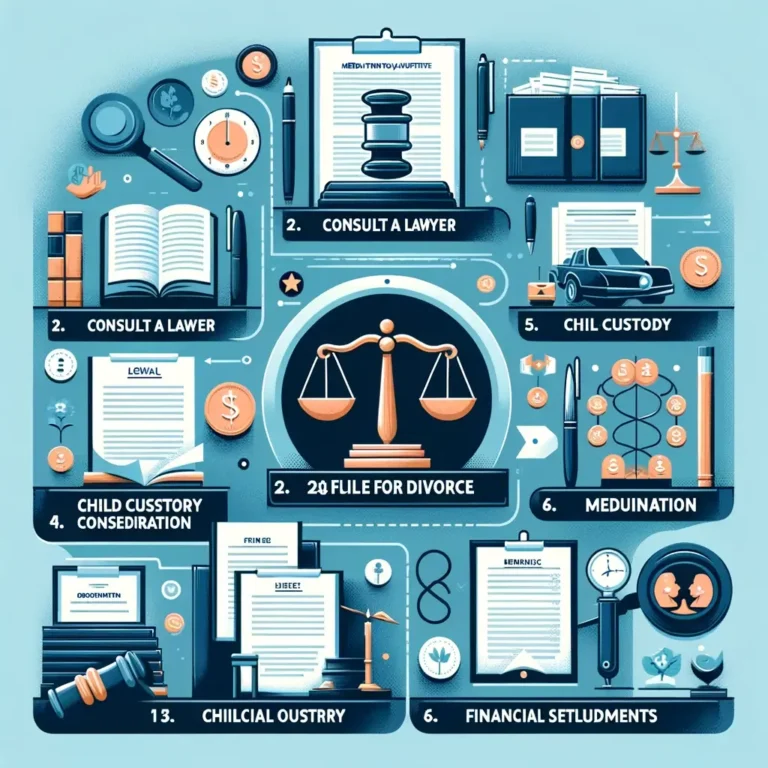In this article we have explained about Legal Help for Landlord-Tenant Disputes. Landlord-tenant disputes are a common occurrence in the rental market. These disputes can range from minor misunderstandings to complex legal battles, making it essential for both landlords and tenants to understand their rights and responsibilities. This article provides comprehensive insights into the legal help available for landlord-tenant disputes, ensuring that you navigate through these complexities with ease.
FAQ (FREQUENTLY ASKED QUESTIONS)
- Q: What is a landlord-tenant dispute?
A: A landlord-tenant dispute is a disagreement or conflict between a landlord and a tenant regarding issues such as rent, property maintenance, or lease terms. - Q: Can I resolve a landlord-tenant dispute without legal help?
A: Yes, many disputes can be resolved through open communication. However, legal help may be necessary for complex or contentious issues. - Q: What rights do landlords have in a dispute?
A: Landlords have rights related to property management, rent collection, and enforcing lease agreements. Legal help can guide them through these rights. - Q: What rights do tenants have in a dispute?
A: Tenants have rights concerning habitability, privacy, and fair treatment. Legal assistance can help tenants understand and protect these rights. - Q: How can a lease agreement prevent disputes?
A: Clear and comprehensive lease agreements can minimize disputes by outlining expectations, responsibilities, and terms for both parties. - Q: Can a landlord evict a tenant without legal proceedings?
A: No, landlords must follow legal eviction processes. Attempting to evict without proper procedures can lead to legal consequences. - Q: What is the role of a mediator in landlord-tenant disputes?
A: Mediators help facilitate communication between landlords and tenants to reach a mutually agreeable resolution without going to court. - Q: When should I involve an attorney in a landlord-tenant dispute?
A: Consider involving an attorney when a dispute escalates, involves complex legal issues, or if attempts at resolution have failed. - Q: Can a tenant withhold rent during a dispute?
A: In some situations, tenants may be allowed to withhold rent, but it’s crucial to understand the specific legal conditions that justify such actions. - Q: How long does the eviction process take?
A: The eviction process duration varies by jurisdiction and circumstances. Legal assistance can provide guidance on the specific timeline. - Q: What can a landlord do if a tenant damages the property?
A: Landlords can take legal action to recover repair costs from a tenant who damages the property beyond normal wear and tear. - Q: Can a landlord enter a rental property without permission?
A: Landlords typically need to provide notice and obtain tenant consent before entering a rental property, except in emergency situations. - Q: Can a tenant break a lease early without consequences?
A: Breaking a lease early usually has consequences, such as losing the security deposit or owing rent. Legal advice can clarify the specific circumstances. - Q: How can a tenant prove a landlord’s failure to maintain the property?
A: Tenants can document issues, notify the landlord in writing, and seek legal advice if the landlord fails to address maintenance concerns. - Q: What is constructive eviction?
A: Constructive eviction occurs when a landlord’s actions or negligence make a property uninhabitable, giving the tenant grounds to terminate the lease. - Q: Can a landlord raise rent arbitrarily?
A: Rent increases are typically subject to lease terms and local rent control laws. Consultation with a legal professional can clarify specific regulations. - Q: Can a landlord refuse to renew a lease without cause?
A: Depending on local laws, landlords may have the right to choose not to renew a lease, but they cannot do so for discriminatory reasons. - Q: How can a tenant fight an unjust eviction?
A: Tenants can challenge an unjust eviction by gathering evidence, understanding their rights, and seeking legal assistance to contest the eviction in court. - Q: What protections exist for tenants during the COVID-19 pandemic?
A: Many jurisdictions have implemented temporary protections, such as eviction moratoriums, to help tenants facing financial challenges due to the pandemic. - Q: Can a landlord charge any amount for a security deposit?
A: Laws limit the amount a landlord can charge for a security deposit. Legal advice can help tenants understand and protect their rights in this regard. - Q: What is the “quiet enjoyment” right for tenants?
A: The “quiet enjoyment” right ensures that tenants can live in their rental property without significant interference or disturbances from the landlord. - Q: Can a tenant sublet the rental property without the landlord’s consent?
A: Generally, tenants need the landlord’s consent to sublet. Violating this requirement may lead to eviction. - Q: How can a landlord address noise complaints from other tenants?
A: Landlords can address noise complaints by enforcing lease terms, issuing warnings, and, if necessary, pursuing legal action for repeated violations. - Q: Can a tenant withhold rent for necessary repairs?
A: Some jurisdictions allow tenants to withhold rent for necessary repairs under specific conditions. Legal advice can help tenants navigate these situations. - Q: What steps should a landlord take to terminate a lease legally?
A: Landlords should follow the legal procedures for lease termination, which often include providing written notice and following the timeline specified by law. - Q: Can a tenant be evicted for reporting code violations?
A: Retaliatory eviction for reporting code violations is illegal in many places. Tenants should be aware of their rights and seek legal assistance if necessary. - Q: How can a landlord recover unpaid rent from a former tenant?
A: Landlords can pursue legal action, such as small claims court, to recover unpaid rent from a former tenant. - Q: What is the difference between a repair and an improvement in rental properties?
A: Repairs are necessary fixes to maintain habitability, while improvements enhance the property. The responsibility for each may vary based on the lease agreement. - Q: Can a landlord discriminate against tenants based on protected characteristics?
A: No, it is illegal for landlords to discriminate based on factors such as race, gender, religion, or disability. Legal help can address instances of discrimination. -
Q: How can a tenant enforce lease terms against a negligent landlord?
A: Tenants can document violations, notify the landlord in writing, and seek legal assistance to enforce lease terms if the landlord continues to neglect their responsibilities.
Sources:-
















